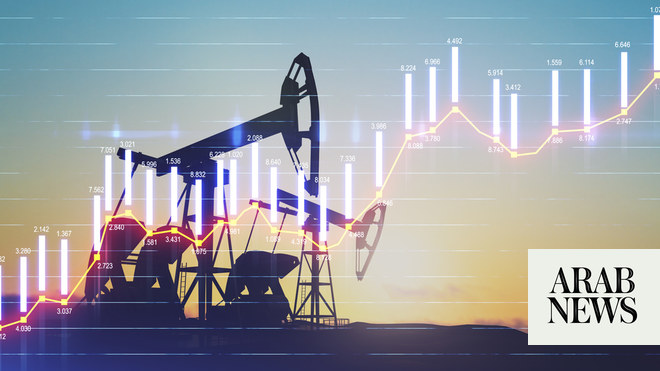
After swelling to near two-year highs, US crude stocks fell by 3.1 million barrels last week
Members of the OPEC agreed to meet on July 1
TOKYO: Oil prices rose nearly 2 percent on Thursday on signs of improving demand in the United States, the world’s biggest crude consumer, and as OPEC and other producers finally agreed to a date for a meeting to discuss output cuts.
Brent crude futures rose $1.13, or 1.8 percent, to $62.95 a barrel at 0611 GMT. They dropped 0.5 percent on Wednesday.
US West Texas Intermediate (WTI) crude futures were up 90 cents, or 1.7 percent, at $54.66 a barrel. WTI fell 0.26 percent in the previous session.
“It’s a very mixed bag of factors. In the US (oil) demand is likely to be picking up into summer and the OPEC meeting looks like there’s going to be an extension or even more cuts is a possibility,” said Phin Zeibell, senior economist at National Australia Bank.
After swelling to near two-year highs, US crude stocks fell by 3.1 million barrels last week, compared with analyst expectations for a draw of 1.1 million barrels, the Energy Information Administration (EIA) said.
Refined products also posted surprise drawdowns due to a rise as gasoline demand ticked higher on a weekly basis and surged 6.5 percent from a year ago.
Members of the Organization of the Petroleum Exporting Countries (OPEC) agreed to meet on July 1, followed by a meeting with non-OPEC allies on July 2, after weeks of wrangling over dates.
OPEC and its allies will discuss whether to extend a deal on cutting 1.2 million barrels per day of production that runs out this month.
Momentum for an agreement appeared to be building as the United Arab Emirates’ energy minister told Al-Bayan newspaper that an extension is “logical and reasonable.”
Expectations the US Federal Reserve could cut interest rates at its next meeting and confirmation that the chief US trade negotiator will meet his Chinese counterpart before a meeting between President Donald Trump and Chinese President Xi Jinping next week are also supporting markets.
“Fresh stimulus from the largest economies will greatly improve the demand side argument. A positive outcome with the US — China would be icing on the cake,” said Edward Moya, senior market analyst at brokers OANDA.
Tensions remain high in the Middle East after last week’s tanker attacks, which boosted oil prices. Fears of a confrontation between Iran and the United States have mounted, with Washington blaming Tehran, which has denied any role.
In the latest escalation, Iran’s elite Revolutionary Guards have shot down a US “spy” drone in the southern province of Hormozgan, the Guards’ news website Sepah News said on Thursday.
“The geopolitical side is the wild card and can’t be predicted, not just the Iran concerns but also the trade meeting between Trump and Xi,” said Zeibell, adding “we expect to see an improvement in oil prices over the next month or two.”












